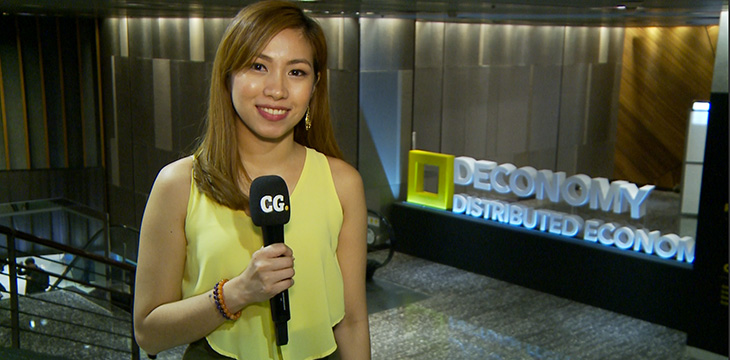|
Getting your Trinity Audio player ready...
|
Cryptocurrency exchange Bithumb kicked off the second day of the Deconomy 2018 with an overview of South Korea’s growing cryptocurrency market, considered to be the largest in the world. Bithumb Vice President Jung-a Lee took the stage and gave a rundown on the growth the company has experienced in the past six months.
With trading volume reaching a daily record high at KRW3.2 trillion and a current market share of 40-55%, Bithumb shared security measures for the overheating market. In the wake of the latest cryptocurrency cyber-attack in Japan, Coingeek.com spoke to Sangyup Lee, Bithumb’s head of PR, on how the company can prevent this from happening in South Korea.
“We also have experienced some security issues last November, but we have made a lot of improvements in our security system, so we now have some security software which ensures people that their accounts are safe and also convenient to trade,” Lee said.
The highlight of Deconomy 2018’s Day 2 focused on the decentralized platform and shared global infrastructure, Ethereum. Research scientist Vlad Zamfir started the segment speaking about blockchain governance. He stated that there is no need to rush legitimizing blockhain governance nor choose a solution that is convenient to empower certain stakeholders over others as this may result in negative consequences down the line.
“We need to be careful not to just quickly legitimize everything because we’re anxious we don’t have clear governance processes,” Zamfir said. He also added, on the contrary, that the community needs to be mindful that if they don’t legitimize anything then they won’t have any governance process either.
He recommended to have a public conversation and build legitimacy on blockhain governance. “If we don’t have legitimate blockchain processes, someone else might govern for us,” Zamfir concluded.
Zamfir later joined an Ethereum research scientists panel led by Vitalik Buterin. Moderated by Joseph Poon, the group discussed the importance of scaling and opened up about the challenges around it.
“One of the greatest barriers to this space’s growth in a more productive way is the dissemination of the information that will allow people to evaluate and validate these protocols themselves,” said research scientist Karl Floresch.
Buterin closed the day with an “Ethereum vision” speech, which focused blockchain’s potential and efficiency. “The point of all these is that there is a large set of designs that we could choose from if we want blockchains that are more efficient,” he explained. He added that the community can use a combination of on-scale improvement like sharding and plasma, and do things like state channels. Although Buterin didn’t provide any clear timeline for these solutions, he claimed that it’s more cultural and social factors that are slowing down the process.
He ended his speech with statements on the current state of where blockchain is. “Finding the right end part of the space for your application to be in, fully developing the all the corners of the space and making all the corners of the space as easy to use, as easy to develop and as easy to build things in and really trying to figure out how much you can really get if you want it,” Buterin said, “that’s what I think the next phase of the blockchain space is about and that phase has already begun.”

 02-17-2026
02-17-2026 




